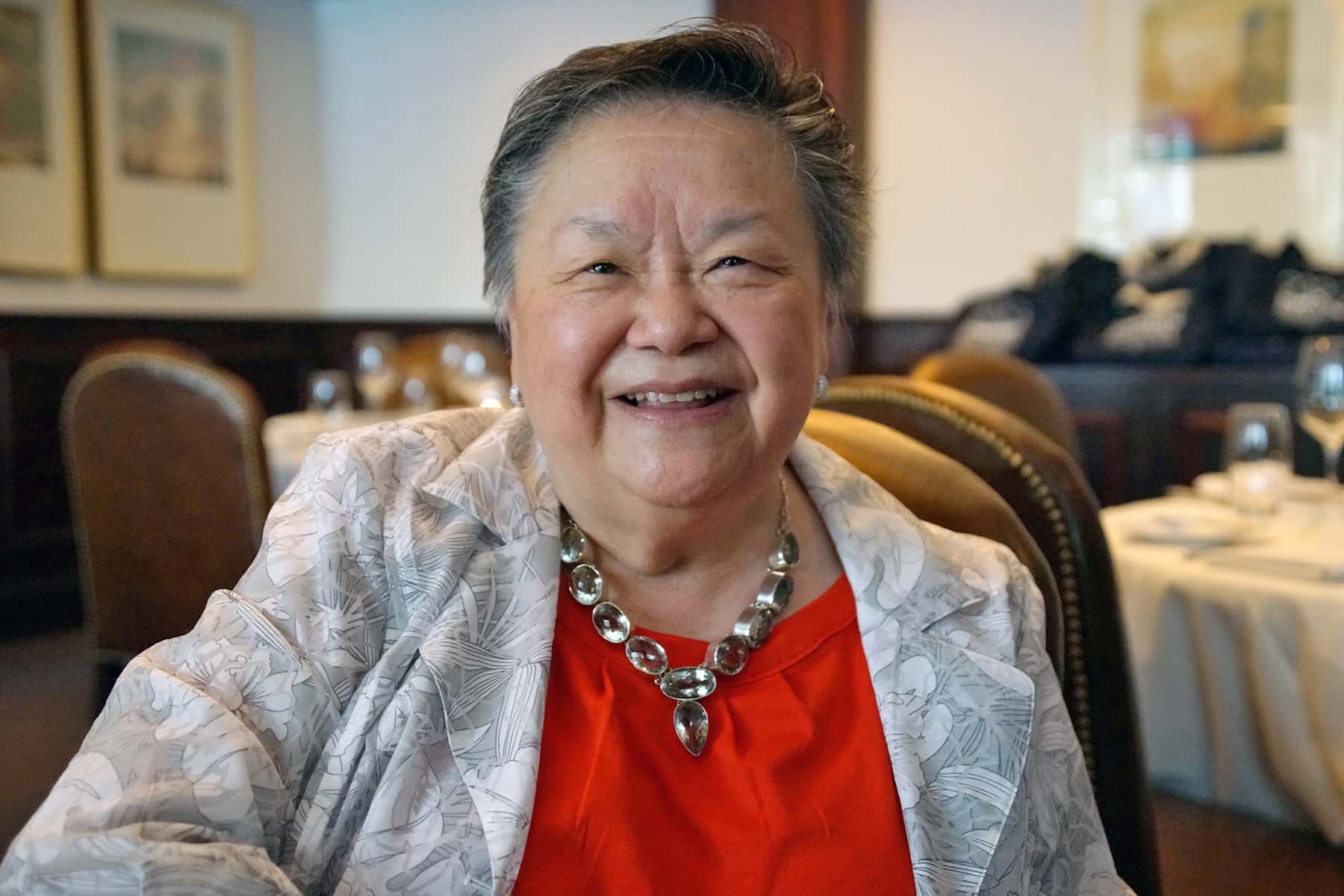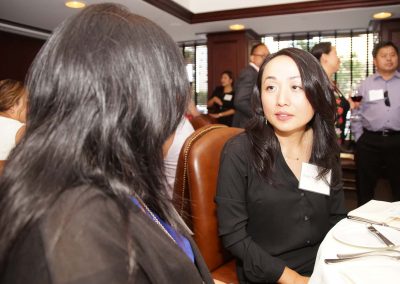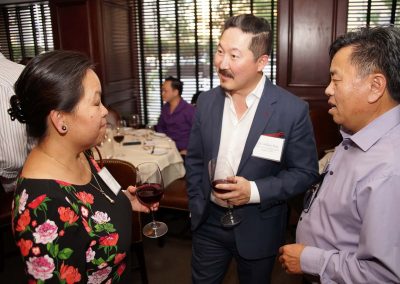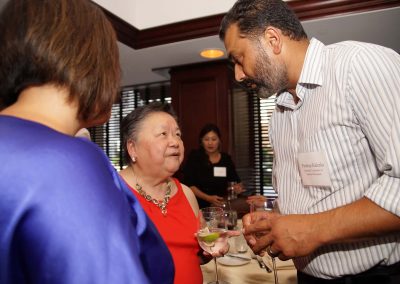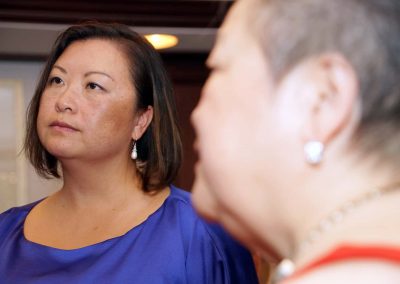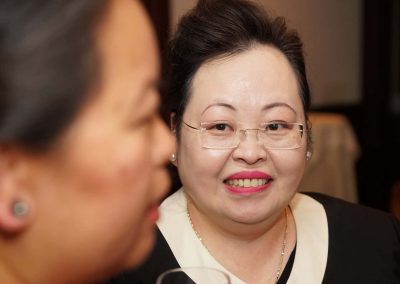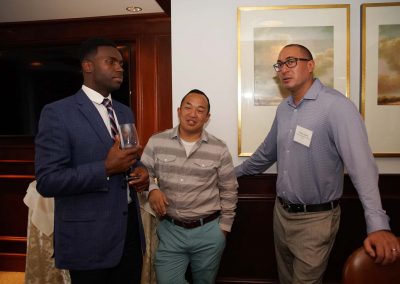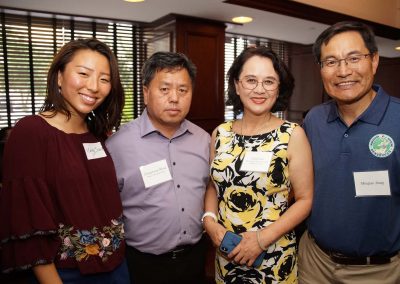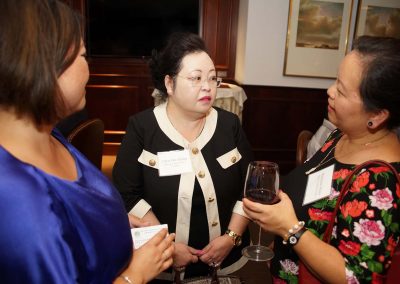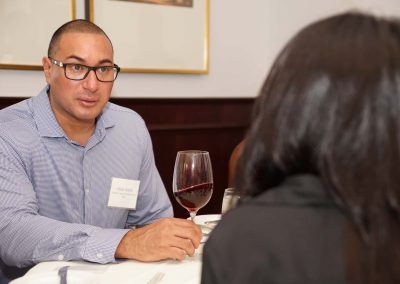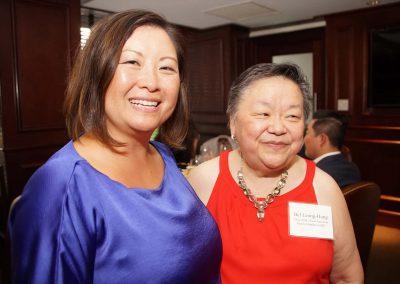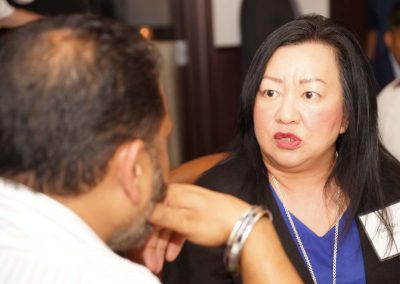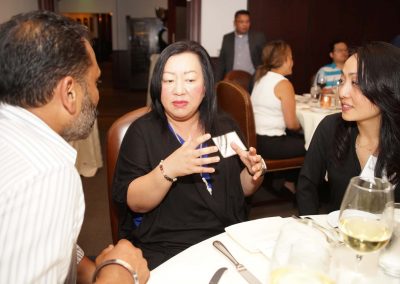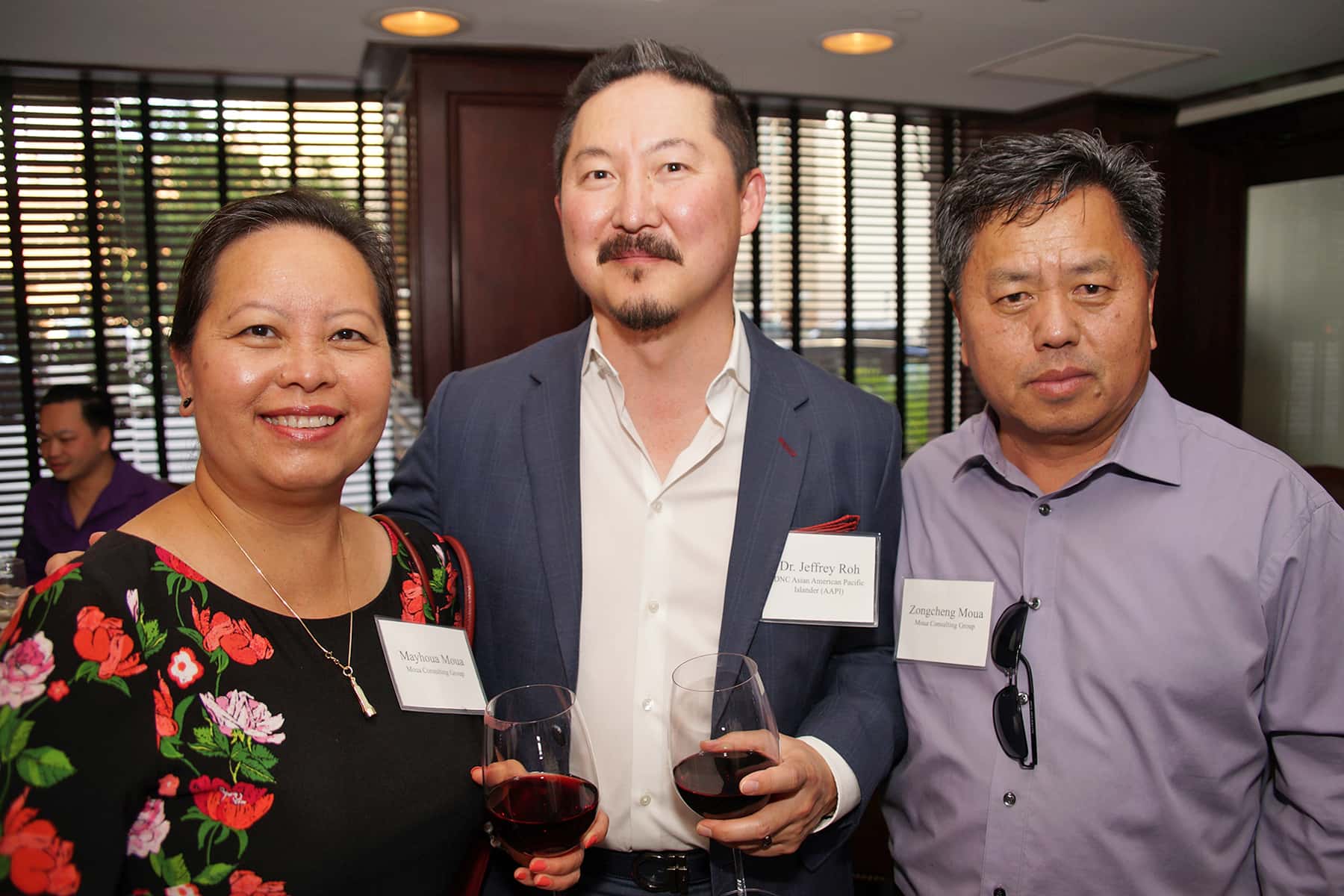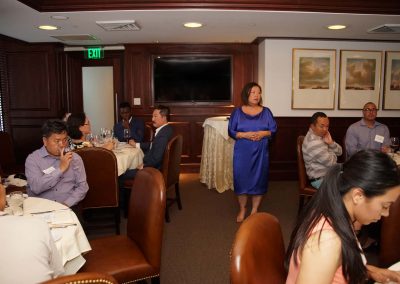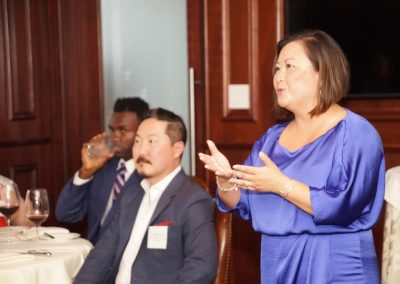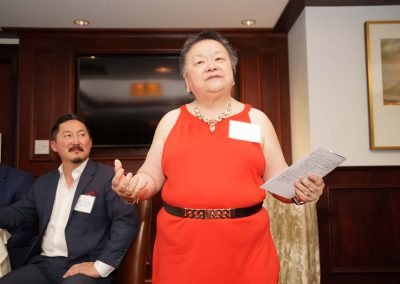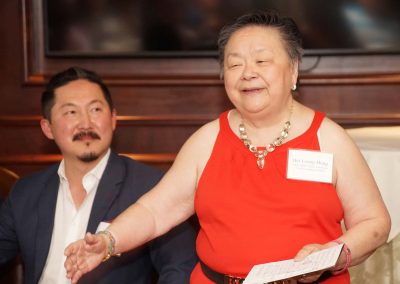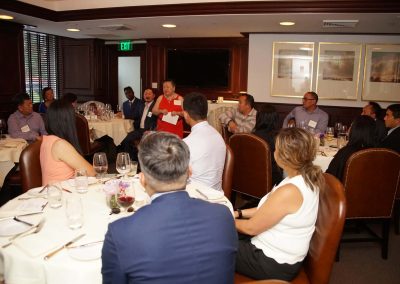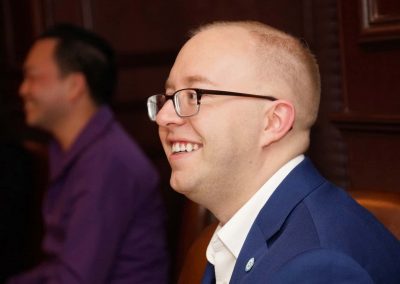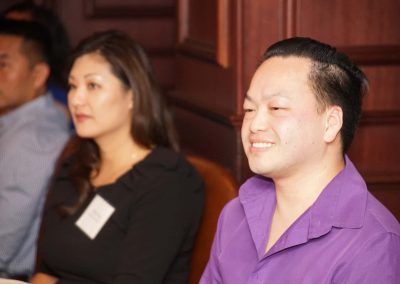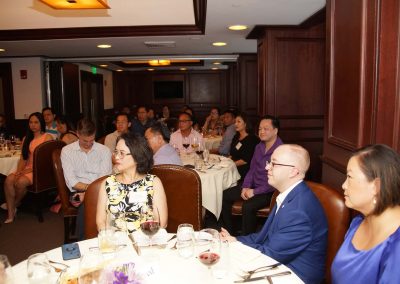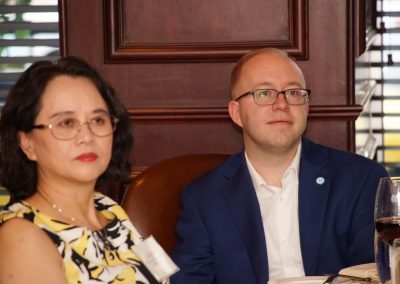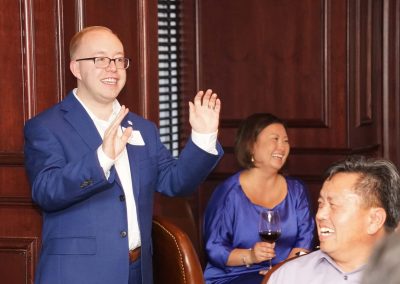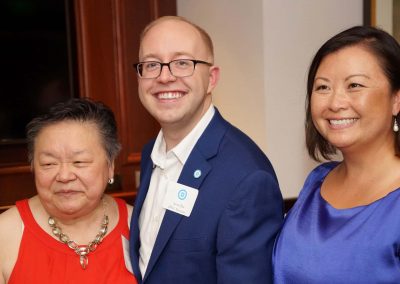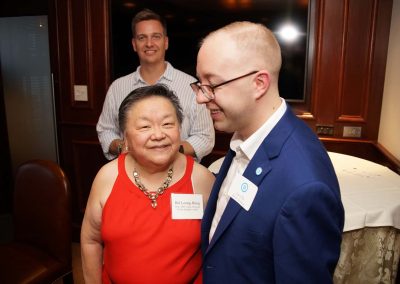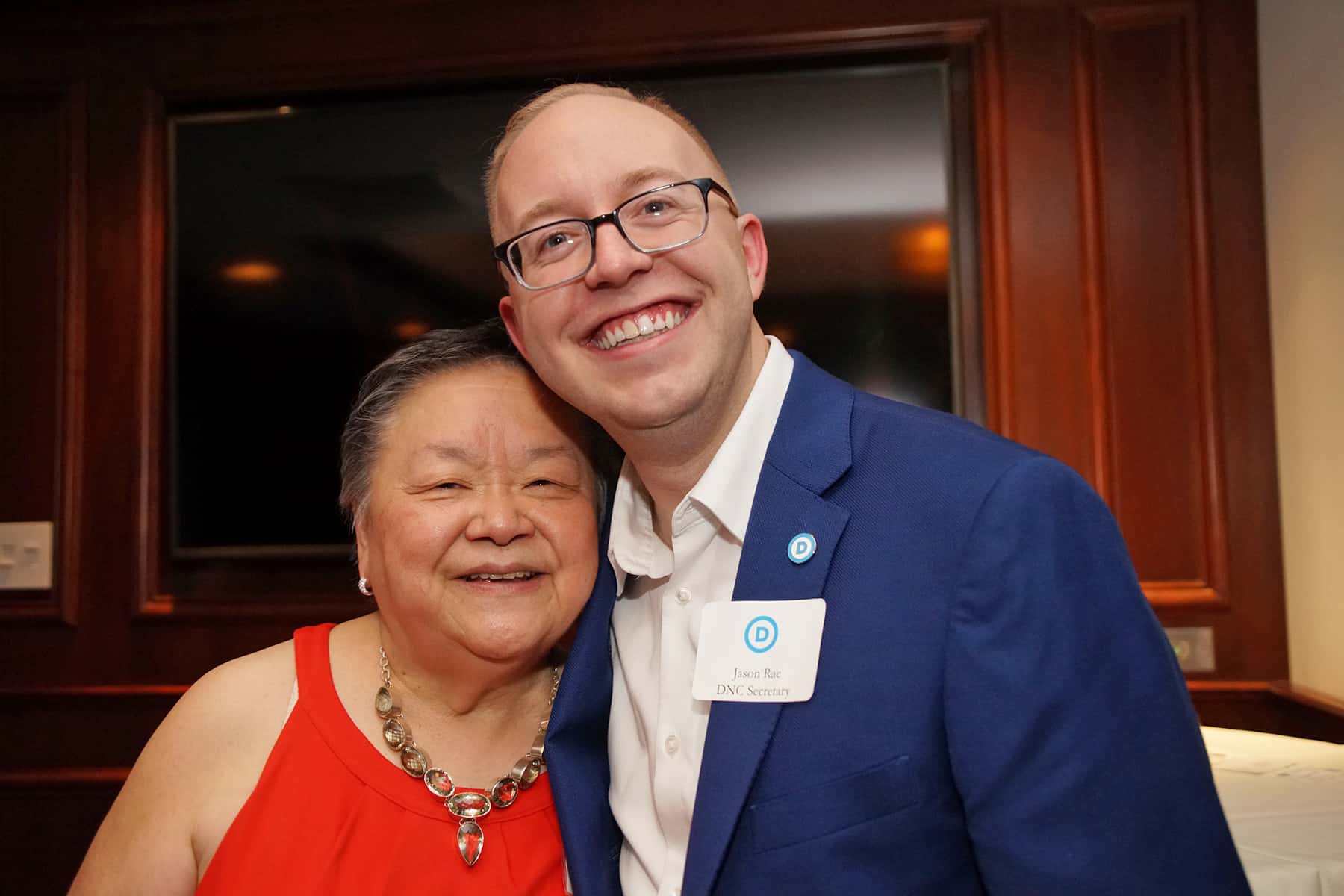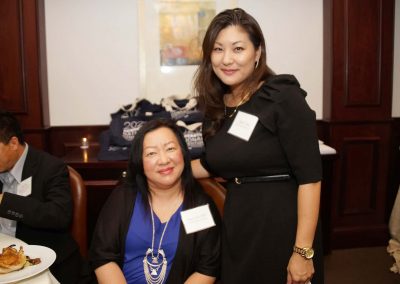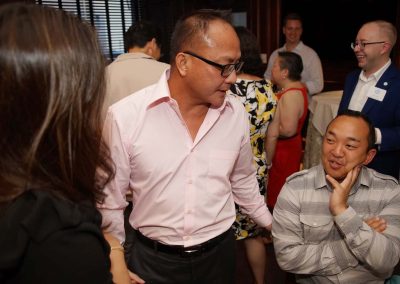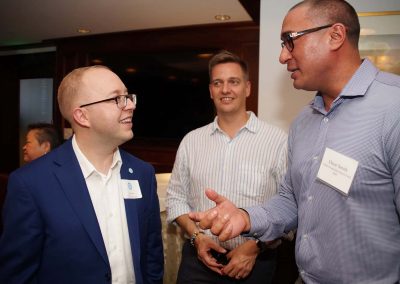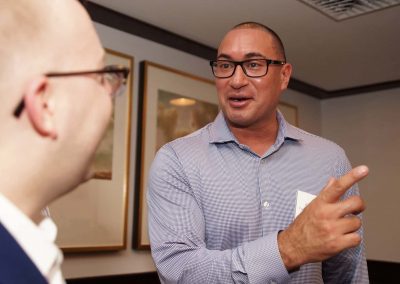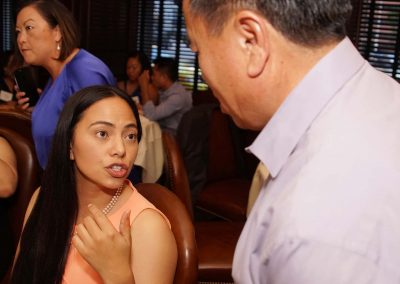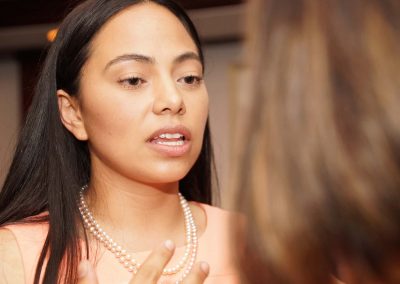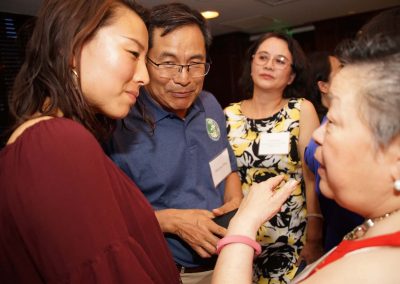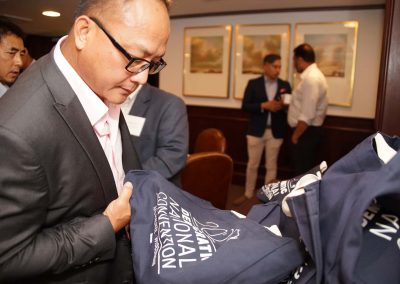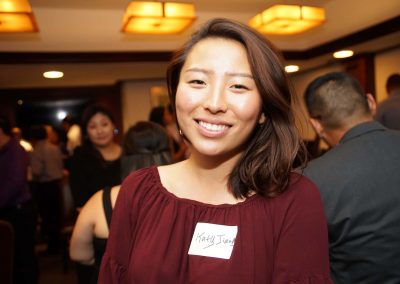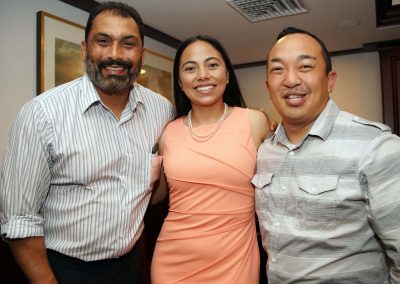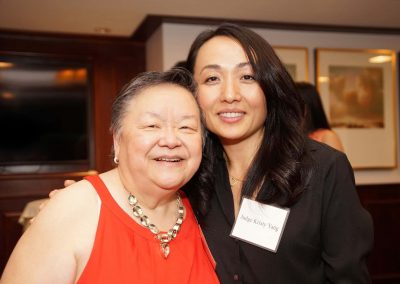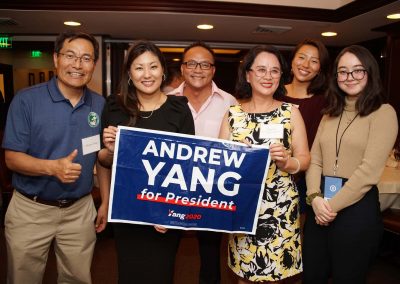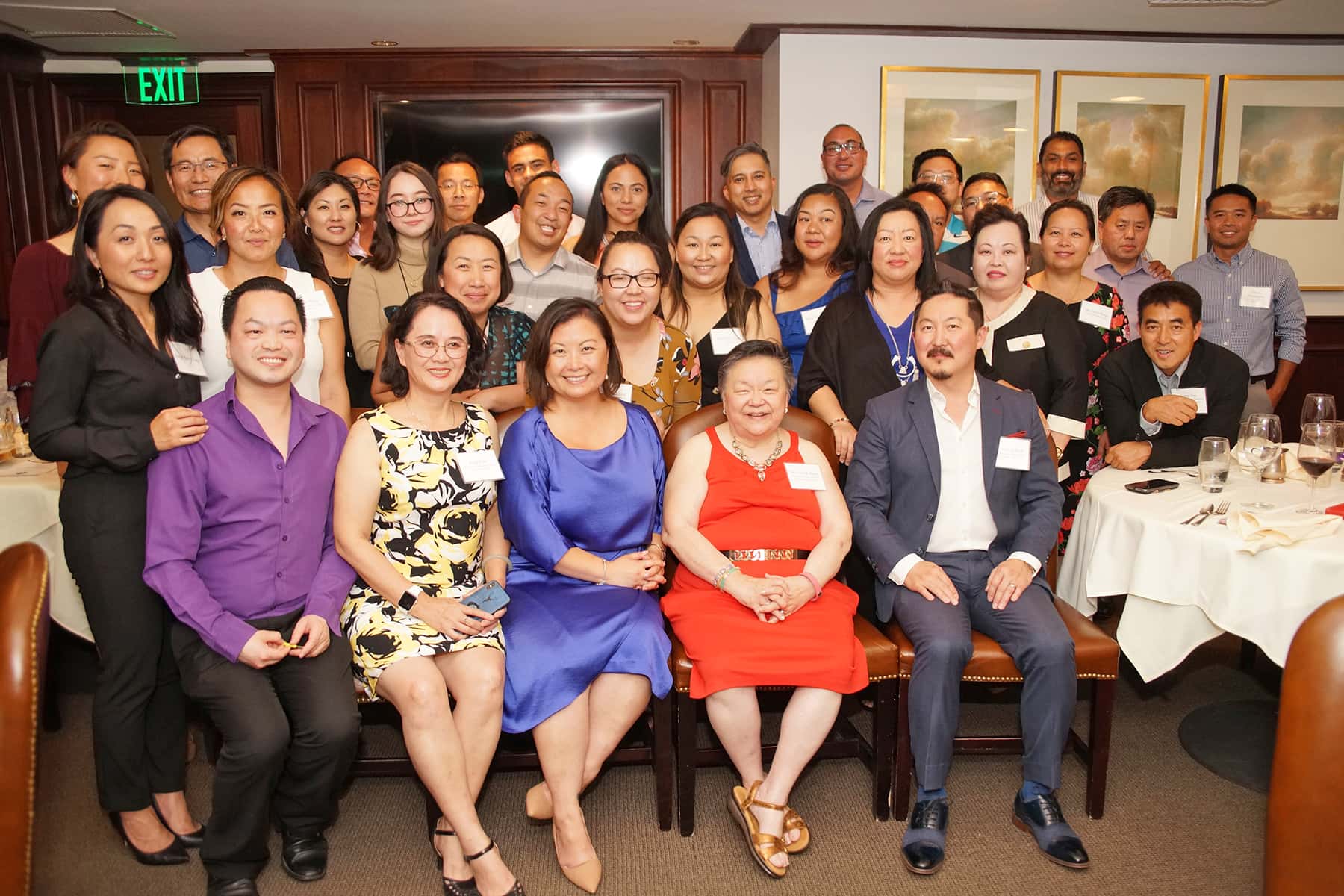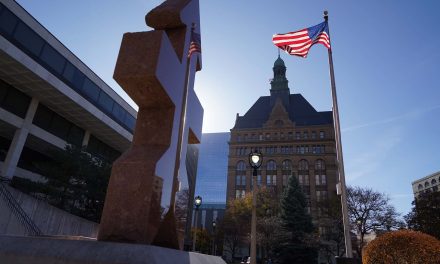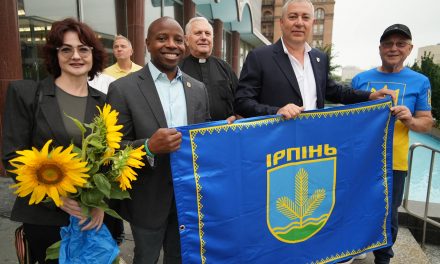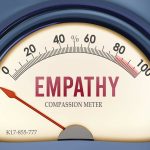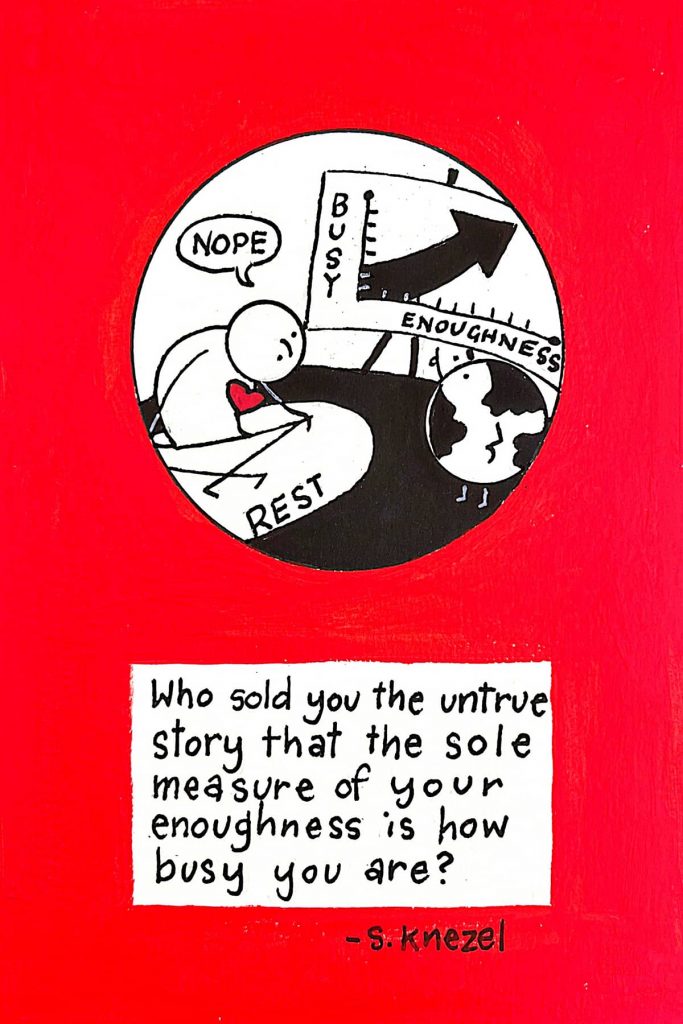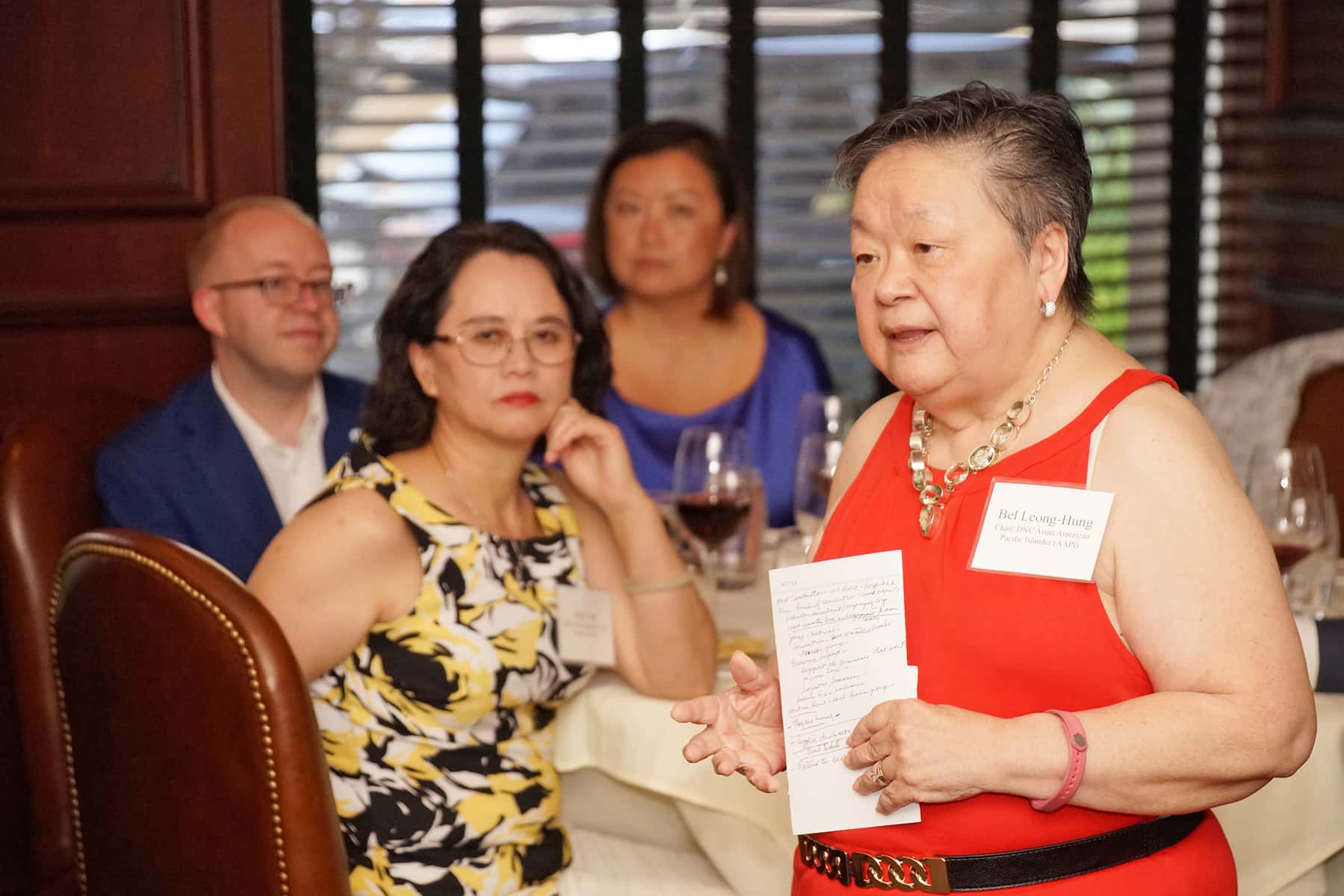
The National Chair of the DNC’s Asian American/Pacific Islander (AAPI) Caucus, Bel Leong-Hong, met with Hmong business owners and Asian American community leaders in Milwaukee on July 19, to discuss ways to make sure they benefited from the economic impact of the convention next year and were not left behind as the city’s forgotten minority group.
Diversity is usually simplified in terms of black and white, which often excludes Hispanics from the conversation. In Milwaukee, where Asian Americans comprise 4% of the city’s demographics, they are usually not even thought of as a minority population.
The Hmong Wisconsin Chamber of Commerce (HWCC) hosted the working dinner meeting to discuss the 2020 DNC coming to Milwaukee, with a focus on the significance of having the AAPI community involved and how to get AAPI-owned businesses prepared for the DNC.
“We participated in several pieces of the site selection process earlier this year with the Democratic Party. Right when those conversations started in Milwaukee, we were proactive in making sure that our local Asian American community and those across Wisconsin would have visibility during the DNC,” said May yer Thao, Executive Director of HWCC. “We also looked at how we needed to engage our Asian American communities, and so we could see some of the economic impact from this convention.”
HWCC was originally created with a focus on helping the Hmong community, but diversified to work with all low-income and underserved communities in Wisconsin. Understanding the challenges faced by local AAPI businesses, Thao wanted to ensure that they had a place at the table for next year’s $70 million event. Jason Rae, Secretary of the Democratic National Committee, also offered suggestions for involvement and a path for successful participation to the crowd of guests.
Part of meeting process was meant bringing together Asian American and Pacific Islander leaders, in order to partner on putting together events that would welcome National DNC AAPI delegates to Milwaukee. It also provided a networking opportunity and a space to outline strategies for cooperation and information distribution, so that the AAPI community would would not be left out.
“One of the things that I do, as part of my job as the National AAPI Caucus Chair, is at the beginning of each cycle for the DNC convention, I go to the host city to meet with the Asian American and Pacific Islander leaders,” said Bel Leong-Hong.
With midwest roots from Illinois, Leong-Hong began her career in the federal government as an entry-level mathematician, and retired 30 years later as a Deputy Assistant Secretary of Defense. After she retired from the federal government to start her own private company, she got active in politics and became a member of the DNC.
“I’m a first generation Chinese American. I was born in Hong Kong, and at a very young age my mother smuggled me out of China because of Communism. We went into hiding and ultimately travelled to Cuba, where my grandfather had a chain of grocery stores. I thought that was where I would spend the rest of my life. Then came Fidel Castro and his Revolution. When the country declared itself Communist, off we went again,” said Leong-Hong. “So my hope is that our current political condition does not turn into one of those situations where I have to run away again. Because, I don’t have any other country to go to.”
The selection process for a city to host the 2020 National Convention took almost a year. Milwaukee made a huge marketing effort, with involvement from Governor Tony Evers, Mayor Tom Barrett, County Executive Chris Abele, Wisconsin congressional delegations, and local business leaders like Alex Lasry and Joe Bartolotta. The Asian American participation was noticeable but also sporadic.
There are already many committees involved with the 2020 DNC, but two specific apparatus dedicated to host city and the convention. Ling Luo and Jeffrey Roh, MD, both of the DNC National Finance Council and AAPI Leadership Council joined the event to share their insight from past DNC Conventions. Leong-Hong said that she was surprised to learn that Milwaukee’s Asian American community involvement had so far been limited.
“My reason for coming to Milwaukee was to meet with AAPI leaders so I could find out where things stood, then go back to the DNC and make sure they are doing enough to include our community,” added Leong-Hong. “The convention is big business. It will have a huge economic impact for the City of Milwaukee. And as business and community leaders, there should be a positive impact on each of you.”
Leong-Hong cautioned that the impact would only be realized if AAPI members actively participated to do something about it. They could not sit back and wait for the DNC to tap them on the shoulder and offer them some business.
She acknowledged Milwaukee’s Judge Kashoua “Kristy” Yang, the first Hmong woman judge in the United States and only the second Hmong judge in American history, as an example of Asian Americans stepping into public leadership roles. It was also Leong-Hong’s hope that more individuals would step up to become AAPI delegates to make sure Asian Americans had visible representation from Wisconsin.
Plans are already underway for the next step, to reach out, support, and empower the statewide AAPI community, as the calendar holds just under a year left until the DNC’s National Convention kicks off in downtown Milwaukee.
- LULAC and Airbnb partner ahead of 2020 DNC to promote entrepreneurship for Latinx women
- Episodes of John McGivern’s “Around the Corner” offer preview of Milwaukee for 2020 DNC visitors
- City moves forward on streetcar expansion plans with The Hop for 2020 DNC and beyond
- City holds DNC 2020 brainstorming session to assist minority enterprises share in economic impact
- DNC Chair Tom Perez returns for convention planning with hope to inspire Midwest and beyond
- Mitchell Airport to get Milwaukee-flavored refresh of food and shops in time for 2020 DNC
- HaywoodGroup’s One MKE Plaza aims to bring Ikon Hotel to north neighborhoods ahead of DNC
- Milwaukee takes center stage in national politics with selection to host 2020 DNC Convention
- Save Me: New film shines light on growing suicide crisis within Milwaukee’s Hmong community
- Local Hmong experience cultural tensions as modern generations confront old traditions
- Milwaukee’s Hmong community to celebrate 42nd annual New Year event
- First Hmong-language local news to broadcast on Nyob Zoo Milwaukee TV
- Hmong community’s future the focus of development conference
- Paul C. Lo: A Hmong journey from refugee to jurist
- Hmong community celebrates 41st New Year in Milwaukee
- Kashoua Yang: When our future is in the hands of others
- Video: Growing Up Hmong in Wisconsin
- SBA forms alliance with LGBT and Hmong groups
- Mai Payia Vang: Where are the Hmong young professionals in Milwaukee?
Lee Matz

